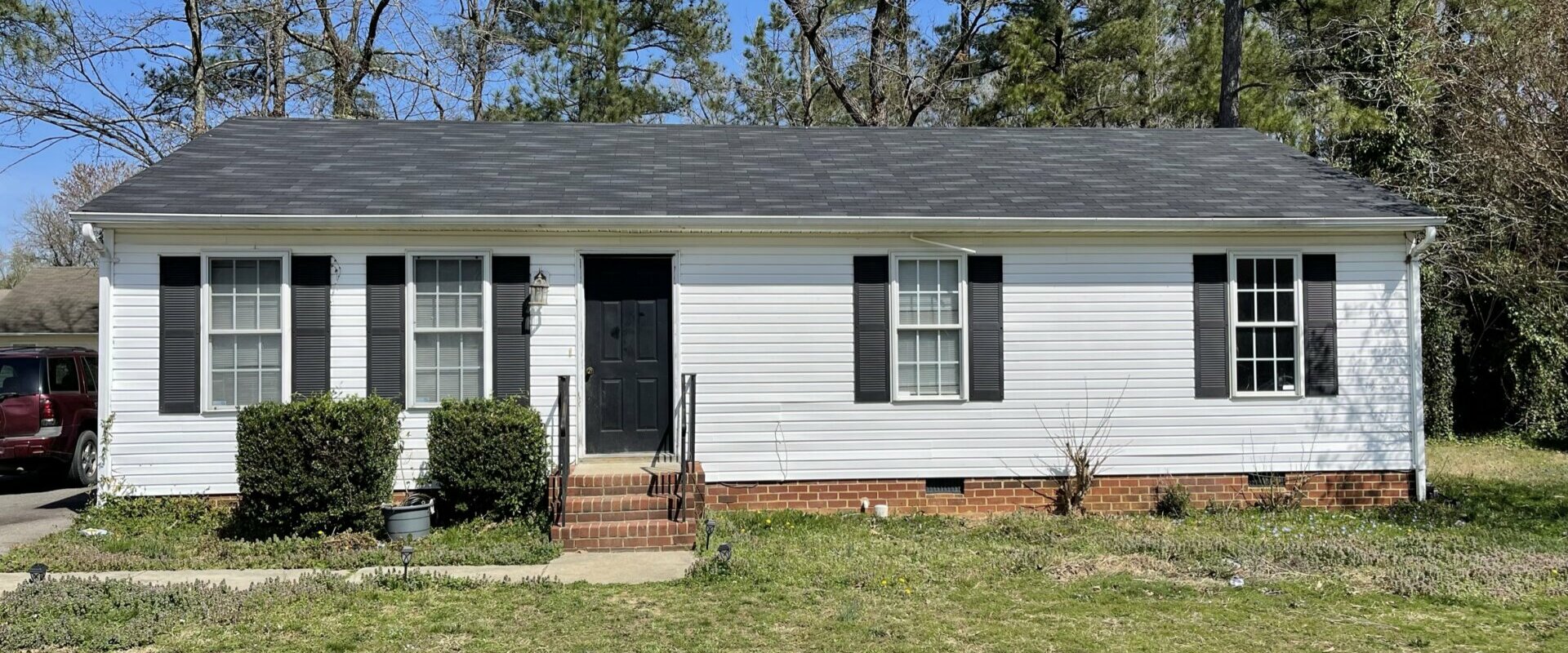What Taxes Must Be Paid When Selling A Home In Virginia?

When selling a home in Virginia, it is essential to understand the taxation rules and regulations that may apply. The state’s taxes on real estate transactions include transfer tax, personal property tax, and income tax on any gain from the home’s sale.
Transfer tax is a fee that is given to the Commonwealth of Virginia whenever a property title or deed is changed hands.Local governments charge personal property taxes every year based on the value of all the things that people own in their homes, like furniture, tools, and clothes.
When you sell your home, the money you get must be reported as taxable income at both the state and federal levels. It is important to get help from a professional when dealing with these taxes to make sure that all the rules are being followed properly.
Overview Of Capital Gains And Other Taxes On Real Estate Transactions In Virginia
When selling a home in Virginia, it’s important to understand the taxes involved, especially those related to capital gains and other real estate transactions. If you sell a house and later repurchase it, you could still be responsible for paying capital gains tax after selling a house on any profit made from the original sale.
When you buy something and hold on to it for less than a year, or when you make more than $200,000 from the sale as a married couple reporting jointly, you have to pay capital gains taxes. There may be other taxes as well, such as transfer taxes levied by cities and counties, recordation taxes levied by local governments, and deed recordation fees that change based on the city or county where the deal takes place.
Knowing about these different taxes can help you make better plans for a smooth Virginia real estate deal.
Strategies To Minimize Tax Liability When Selling A Home In Virginia
If you want to pay the least amount of taxes possible when you sell your home in Virginia, you should know the tax rules and laws. To make sure you pay the right amount of taxes when you sell your home, you should learn about your state’s capital gains tax law.
Also, learning how to figure out the taxable gain on the sale of your home will help you figure out how much of a profit you will make. You can also pay less in taxes if you know the right depreciation rates and how they affect your taxes.
Also, knowing what costs you can deduct from your gains can help lower your taxable income even more. When you file your taxes for a real estate deal, it’s also helpful to know which credits or exclusions you may be able to use.
Lastly, if you want to pay the least amount of taxes when you sell your Virginia home, you need to know about any local rules or limits that may affect the sale.
Understanding Exemptions And Exceptions With Taxes When Selling A Home In Virginia
It can be hard to figure out the tax breaks and exemptions that apply when you sell a home in Virginia. To get the most out of your hard-earned money, you should know how taxes work when you sell your home.
There are two major rules that govern taxes on property sales: things that are not taxed and things that are taxed but not in certain situations. Some money is not taxed and does not need to be paid by the seller. This is called an exemption.
If you have an exception, on the other hand, you have to pay that amount whether it is tax-free or not. If you sell something and don’t have to pay any other taxes on it, you may still have to pay capital gains tax.
Also, keep in mind that different Virginia counties may have different rules about how property sales are taxed. For this reason, you should do some study before you try to sell your home in Virginia. Additionally, there are times when deductions don’t apply, which could mean that extra taxes need to be paid based on the sale situation.
Talk to a tax expert or financial advisor before you sell your home in Virginia to make sure you understand all of your tax responsibilities. They can help you figure out how to successfully navigate Virginia’s tax rules for property sales.
What Taxes Do You Pay When Selling A House In Virginia?
When you sell a house in Virginia, you should know about the different taxes that may apply. There could be a capital gains tax, a state income tax, a real estate transfer tax, and more, depending on how the sale went. When you sell your home for more than you paid for it, you have to pay capital gains tax. The amount owed is found by taking the end selling price and subtracting any costs that came with the sale. People who sell their homes also have to pay state income tax on any money they make from the sale. In Virginia, you also have to pay real estate sales tax. The flat fee is based on how much your home is worth and can be anywhere from 2% to 2.5%. At last, you might have to pay extra city taxes in Virginia too, like personal property taxes or excise taxes, based on where you live. It can be hard to keep track of all these tax rules, but this complete guide will help you make sure you are ready for any taxes you owe when you sell your Virginia home.
Does Seller Pay Transfer Tax In Virginia?
The process of selling a house in Virginia can be hard, and it can be hard to figure out the tax rules. A lot of homes want to know if the seller in Virginia pays transfer tax. The Virginia Department of Taxation says that the answer is yes.
When people in Virginia sell their homes, they have to pay transfer taxes. Transfer taxes are based on a portion of the home’s sale price and need to be paid at the closing.
The amount is different in each area, so buyers should check with their local government office before putting their house on the market. Sellers should also think about any other costs that come with paying transfer taxes, like agent or recording fees.
When selling your home in Virginia, it can be hard to figure out the tax rules. But, with some study and planning, sellers can make sure they know all the laws and rules that apply before the sale.
Is There a Sales Tax On Real Estate In Virginia?
In Virginia, there is a sales tax on real estate. The Virginia Department of Taxation says that when someone sells real estate, they must gather and send the appropriate sales tax.
The amount of sales tax that needs to be paid varies on where the property is located and whether it will be used as a home. Sellers of homes in Virginia should know that they have to pay both a state and a city sales tax when the house is sold.
The sales tax you have to pay depends on what county the house is in and can be anywhere from 4% to 6%. It’s important for sellers to know what they need to do to follow Virginia’s tax rules when they sell their home, because not doing so can lead to expensive fines.
What Is The Capital Gains Tax Rate In 2023?
Virginia’s capital gains tax rate will stay at 7% in 2023. This flat rate is used for all capital gains made in the state when a home is sold. People who want to sell their homes should learn about and follow Virginia’s tax rules to make sure they pay the right amount of taxes on the sale. People who are selling their home in Virginia can make smarter choices if they know what capital gains taxes are and how much they cost. Also, homeowners need to talk to a tax professional in order to get an exact estimate of their possible capital gains liability. People can make better decisions about whether or not to invest in a Virginia home sale if they know the appropriate capital gains rate ahead of time.
Additional Resources To Help Virginia Homeowners
Get Your Cash Offer Now! 💰
We buy houses in ANY CONDITION in Richmond. There are no commissions or fees and no obligation whatsoever. Start below by giving us a bit of information about your property…
| TAX SYSTEM | LONG-TERM CAPITAL GAINS TAX | SHORT-TERM CAPITAL GAINS TAX | SHORT-TERM CAPITAL GAINS | LONG-TERM CAPITAL GAINS | PROPERTIES |
| REALTOR | REAL ESTATE BROKER | REAL ESTATE AGENTS | BROKERS | ASSETS | RENTED |
| RENTAL PROPERTY | INTERNAL REVENUE SERVICE | THE INTERNAL REVENUE SERVICE (IRS) | INFORMATION | TAX-FREE | TAX EXEMPTION |
| FSBO | FOR SALE BY OWNER | TRUSTS | DEPRECIATED | DEPRECIATION EXPENSE | TAX BENEFITS |
| CHARITABLE DEDUCTION | INCOME TAX DEDUCTION | INSURANCE COMPANY | INSURANCE CARRIERS | MARGINAL TAX | TAX RATES |
| ORDINARY INCOME | MORTGAGE | MORTGAGE RATES | 1031 EXCHANGE | SERVICE CHARGES | GRANTOR |
| SINGLE FILERS | FILING STATUS | ESTATE AGENTS | TAX BRACKET | FEDERAL TAX BRACKETS | IBUYERS |
| TAX BREAKS | CASH | ADVERTISERS | HOME OWNERSHIP | NATIONAL ASSOCIATION OF REALTORS | REALTORS |
| DISCOUNT RATE | INTEREST RATES | HOME INSURANCE | ENERGY | TOOL | FEDERAL TAX |
| FEDERAL TAXES | MARRIAGE | SPOUSE | MARKET VALUE | LIST PRICE | LEGAL ADVICE |
| INVESTORS | FAIR MARKET VALUE | DIVORCE | DATA | CREDIT CARD | CONSUMERS |
| COMPANIES | COMPANY | COMMISSION | CAPITAL ASSET | BANKING | BANK |
| THE UNITED STATES | REVENUE | APPRAISAL | PROPERTY VALUE | NORTHERN VIRGINIA | NEGOTIATIONS |
| LIMITED LIABILITY COMPANIES | LIMITED LIABILITY COMPANIES (LLCS) | LIKE-KIND EXCHANGE | INCOME TAXES | HOA | EXPERT |
| COPYRIGHT | CONTRACT | DISCOUNT BROKERS | BROKERAGES |

